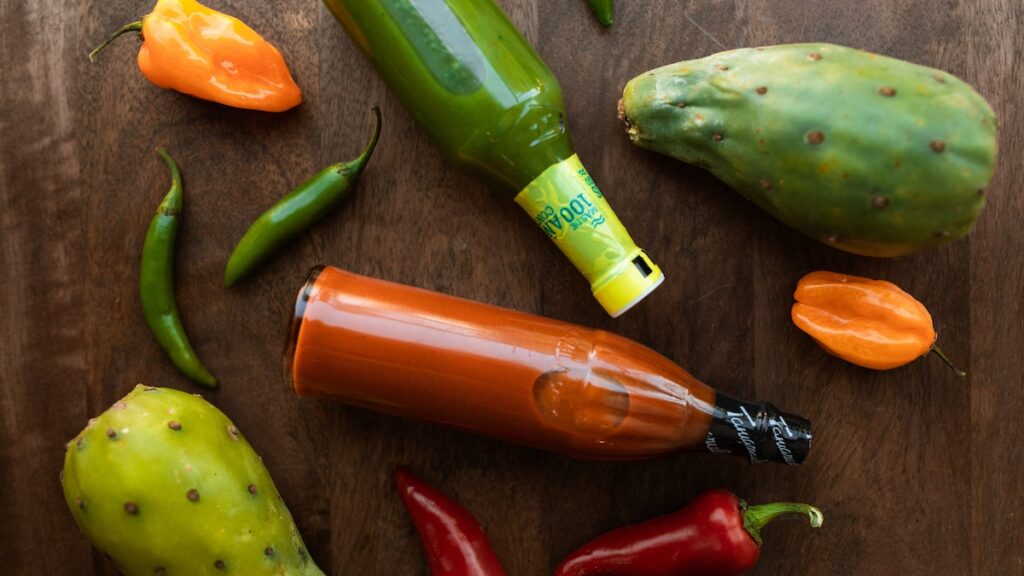Wild blueberries are like tiny bursts of natural flavor, loved for their tasty taste and nutritional goodness. Some people who care about eating healthy benefit from antioxidants, vitamins, and minerals from wild blueberries. But here’s the big question: Are wild blueberries safe to eat?
Yes, wild blueberries are safe to eat. They offer many health benefits. Although there may be potential risks like pesticide residues or allergic reactions, washing them well and buying from trusted sources can help reduce them.
This article looks at the safety and nutrition of wild blueberries, giving practical tips for safe eating. It aims to help readers enjoy them as a yummy and nutritious part of their diet.
Let’s learn more!
Are Wild Blueberries Safe to Eat?
Yes, wild blueberries are safe to eat. They grow naturally in places like North America. What’s more? They help fight free radicals from the body.
“Free radicals can damage the body’s cells by changing a cell’s DNA, or it can alter a cell’s membrane,” explains Hopsecger.
Eating fresh wild blueberries might help keep us healthy and lower the chance of getting sick with diseases like heart problems.
Nonetheless, not all berries are safe to eat. Some might be harmful, so it’s essential to be careful when picking them. It’s better to get them from a store where they make sure they’re safe to eat.
What Exactly are Wild Blueberries?
Wild blueberries are small fruits that grow naturally in some parts of North America and Europe. Unlike the big blueberries you see in stores, people don’t need to plant them.
They grow independently in the wild, like in forests or rocky areas. These berries are colorful, with deep blues and purples, which means they’re full of good nutrients for your body.
Even though they’re smaller than the blueberries you find in shops, wild blueberries taste stronger and healthier. They’re sweet and tangy, and you can use them in many yummy recipes.
What are Alternative Names for Wild Blueberries?
Wild blueberries are small fruits that grow in the wild, especially in forests and mountains. They are very healthy and tasty. People also call them by different names. Some familiar names are:
- Lowbush blueberries: This name comes from growing near the ground, not high like bushes.
- Wild lowbush blueberries: A longer name that also tells us they grow close to the ground in the wild.
- Bilberries in Europe: Wild blueberries are known as bilberries in many European countries.
- Huckleberries: People might call them huckleberries in some places, but true huckleberries are a bit different.
- Fraughan in Ireland: In Ireland, during a particular time called “Fraughan Sunday,” people pick these wild berries.
Even though people call wild blueberries by different names, they are loved by many for their sweet taste and health benefits.
How Nutritious are Wild Blueberries?
Wild blueberries are very nutritious. When we eat them, they help our bodies in many ways. They act like superheroes, fighting against harmful free radicals that can make us sick. They’re also packed with antioxidants, which keep us healthy.
Eating berries helps reduce inflammation and protects our cells from harm. They also give us essential vitamins and minerals that make us feel good and healthy.
When we eat wild blueberries, we’re not just enjoying their sweet taste but also giving our bodies a big boost of goodness! Plus, they can help prevent diseases like metabolic syndrome.
What Happens to Your Body When You Eat Wild Blueberries?
When you eat wild blueberries, great things happen in your body. These little fruits act like health boosters! They’re brimming with essential nutrients that help keep you strong and healthy.
First off, wild blueberries have the potential to reduce the likelihood of heart disease and maintain the health of your blood vessels. They’re great for your brain, too! Eating wild blueberries can improve your memory and help keep your brain working well as you age.
Additionally, they’re suitable for your bones, too. They have vitamin K, which helps your bones stay strong. If you ever get a cut, the vitamin K in blueberries helps your blood clot, helping you heal faster.
Overall, eating wild blueberries isn’t just tasty – it’s like giving your body a big hug of healthiness!
Are Wild Blueberries Detoxifying?
People often talk about wild blueberries and their potential detoxifying effects. But what does this mean? It’s about how they help your body eliminate harmful stuff and stay healthy overall.
These berries have lots of fiber, which helps your digestion by eliminating waste from your body.
Wild blueberries have natural nutrients that help your body in different ways. They boost your immune system and lower the chance of getting sick.
So, while wild blueberries might not work like magic to clean your body instantly, they help keep things going well and make you feel good inside.
Does Cooking Destroy Nutrients in Wild Blueberries?
Yes, cooking wild blueberries can cause some loss of nutrients because heat can break down specific vitamins and phytochemicals. However, how much nutrients are lost depends on how you cook them, how long you cook them, and how hot the heat is.
While some vitamins, like vitamin C, which dissolves in water, may decrease, others, like some antioxidants, might become more potent because the water in the berries evaporates during cooking.
Despite this, wild blueberries are still a healthy choice, whether fresh or cooked.
Try steaming or microwaving them with just a little water to keep as many nutrients as possible when cooking. These methods can help preserve more nutrients than boiling or cooking them for a long time on high heat.
Also, mixing cooked blueberries with other nutritious foods can help compensate for lost nutrients.
Benefits of Wild Blueberries
- High antioxidant content
- Improve cognitive function
- Heart health benefits
- Enhanced immune function
- Skin health benefits
Continue reading as we explore each benefit below.
Improved Cognitive Function
Eating wild blueberries might improve our brains by helping us think, remember, and learn. These berries have particular nutrients that support brain health, making it easier to think and remember things.
Heart Health Benefits
Including wild blueberries in our diet could make our hearts healthier and lower the chance of heart problems.
Enhanced Immune Function
Eating wild blueberries strengthens our immune system, helping us fight sickness. The antioxidants and vitamins in wild blueberries help our body stay healthy and fight diseases.
Skin Health Benefits
Wild blueberries make our skin healthier by reducing oxidative stress and fighting off bad stuff, keeping our skin healthy and glowing.
FAQS
What Varieties of Wild Berries Are There?
Some varieties of wild berries include:
- Blueberries
- Elderberries
- Blackberries
- Strawberries
- Raspberries
Blueberries
Blueberries have high antioxidant properties, especially the wild variety. These antioxidants, such as those in free radicals, are crucial in combating oxidative stress and promoting overall health.
Elderberries
Elderberries are commonly found in North America and are rich in vitamin C. They boost the immune system, making them a popular choice during periods of cold and flu.
Blackberries
Blackberries are known for their intense flavor, are delicious, and are rich in fiber and antioxidants. These nutrients contribute to cardiovascular health and overall well-being.
Strawberries
Many enjoy strawberries for their delicious flavor and adaptability in various recipes. They serve as a valuable vitamin K source, promoting bone health and assisting in blood clotting.
Raspberries
These berries are well-known for their bright red color and juicy texture. They grow on prickly bushes in many parts of the world and are packed with antioxidants, vitamins, and fiber. It helps keep us healthy by supporting our hearts, boosting our immune system, and helping us digest food.
Cranberries
Cranberries are good for your heart, says the American Heart Association. They fight inflammation, lower cholesterol, and reduce heart disease risk. Plus, they prevent urinary tract infections in older adults.
Gooseberries
Gooseberries are small fruits with a sweet-tart taste, used in pies, jams, and desserts, rich in vitamins and minerals.
Can You Eat Wild Blueberries Raw?
Yes, you can eat wild blueberries raw! They’re delicious and packed with antioxidants suitable for your health.
Wild blueberries grow naturally in North America and have many health benefits. You can find them in grocery stores or pick them fresh in Atlantic Canada or the Eastern United States.
Eating wild blueberries may help protect against chronic diseases like cardiovascular disease and improve overall health.
Next time you see fresh wild blueberries, enjoy a cup straight from the bush for a tangy taste and potent antioxidant properties!
Conclusion
Are wild blueberries safe to eat? Yes! Scientific studies say these tiny, dark blue fruits, especially from North America, have many antioxidants. These antioxidants fight stress and help prevent diseases as we age.
Also, clinical research shows wild blueberries are good for our hearts, brain, and immune system.
Adding a cup of fresh wild blueberries to your meals each day can make you healthier. They can strengthen bones, lower heart disease risk, and help your body use insulin better.
Additionally, they taste great, too! So enjoy them without worry — they’re a yummy and safe way to stay healthy!



